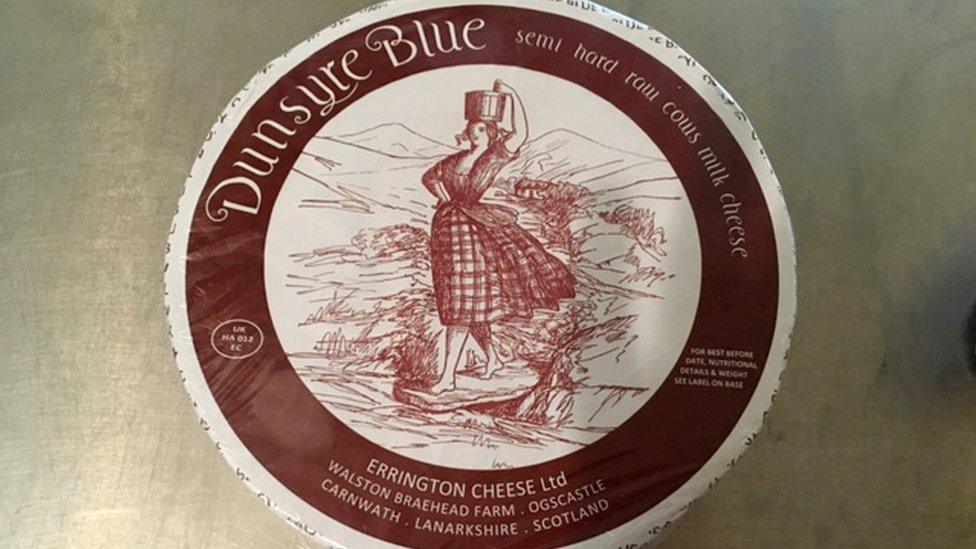Food Standards Scotland issues Errington cheese ban
- Published
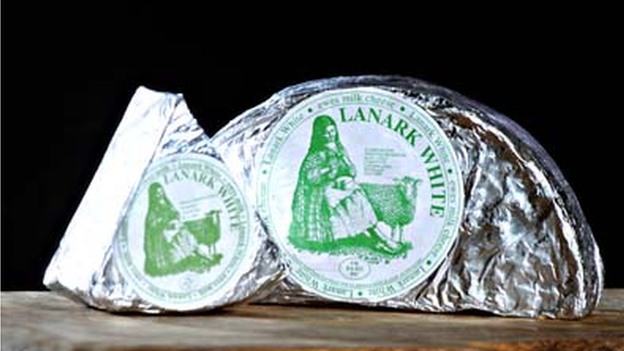
All cheese produced by Errington has been banned
Food Standards Scotland has issued a ban on all cheese made by a South Lanarkshire-based producer.
Errington Cheese Ltd has previously been linked to an E. coli outbreak in which a three-year-old girl died.
The company has disputed the evidence and insists its cheese is safe.
In another development, a "small number" of children in Angus have fallen ill with E. coli. A playgroup had temporarily and voluntarily closed.
NHS Tayside said the Angus cases were linked and the children affected were receiving medical treatment, with advice also being issued to parents.
Food Standards Scotland has not linked the latest outbreak in Tayside to the ban on Errington Cheese.
The ban involves Dunsyre Blue, Dunsyre Baby, Lanark Blue, Lanark White, Maisie's Kebbuck and Cora Linn.
People have been advised not to eat the cheese, and to return it to the seller.
The watchdog has previously linked an outbreak of E. coli in July, in which 20 people were infected, including the child who died, with cheese produced by the firm.
'Potential risk'
Four product recalls have already been issued - three of them voluntary - for specific cheeses produced by Errington.
In a statement, the watchdog said: "FSS is advising all consumers who have purchased these products not to consume them, and to return the products to where they purchased them.
"Both O157 and non-O157 strains of E. coli have been detected in a number of different types of cheese produced by Errington Cheese Ltd.
"Symptoms caused by both O157 and non-O157 E. coli can include diarrhoea, abdominal pain, bloody diarrhoea, and haemolytic uremic syndrome, a serious condition that can lead to kidney failure.
"Given the potential severity of illness and the very low doses of this bacterium required to cause illness, FSS believes this action is in the best interests of consumers."
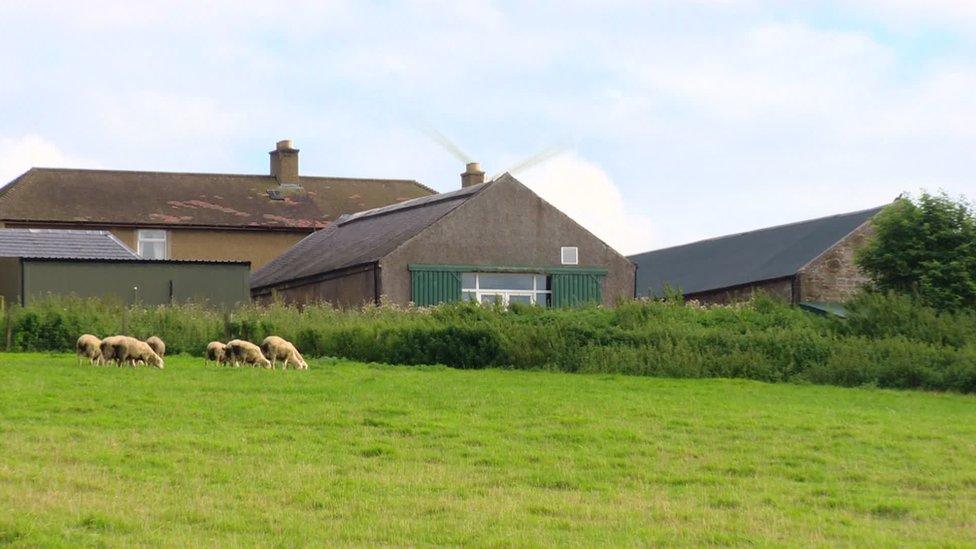
Errington Cheese is based on a farm in South Lanarkshire
Speaking on the BBC's Good Morning Scotland programme, Sir Hugh Pennington, emeritus professor of bacteriology at the University of Aberdeen, questioned the decision by the FSS.
He told the programme: "Food Standards Scotland is behaving in a very precautionary manner because as I understand it, the scientific evidence that there's E. coli 157 in the cheese has not yet been produced.
"There is evidence that some people who ate the Dunsyre Blue cheese in July fell ill - a significant number of people who didn't eat it also fell ill as I understand it."
He added: "Food Standards Scotland has moved in a very, very heavy way and I think it raises the issue of proportionality. How dangerous are these cheeses and have they gone too far in saying none of these cheeses can be sold?"
'Microbiological link'
Errington Cheese said on its website that it was restricted in what it could sell or say because of the "exercise of statutory powers by the authorities".
The company added: "We are pleased to see that FSS acknowledge that there is no microbiological link been found between Dunsyre Blue and the recent outbreak of illness.
"Our own detailed testing keeps us confident that all our cheese is safe to eat."
Speaking about the latest outbreak, Dr Jackie Hyland, consultant in public health medicine at NHS Tayside, said: "NHS Tayside and Angus Council are together investigating a small number of linked cases of E. coli O157 infection.
"The risk to the general public remains low and those affected have received appropriate medical treatment and advice."

What is E. coli?
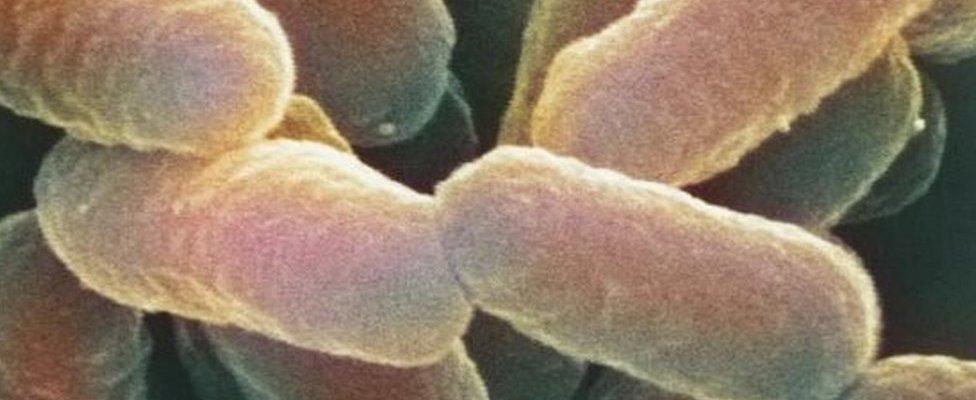
E. coli is a type of bacteria commonly found in the intestines of humans, livestock and other animals, and is excreted in faeces.
The O157 strain is a leading cause of food-borne illness and can be particularly dangerous.
The bacterium is generally spread by contaminated food and water but also can be passed among humans.
In people with weak immune systems, particularly young children and the elderly, the infection can cause serious kidney damage, blindness, paralysis and sometimes death.
Symptoms can include abdominal cramps and diarrhoea that may be bloody and people may also experience fever and vomiting.

- Published10 September 2016
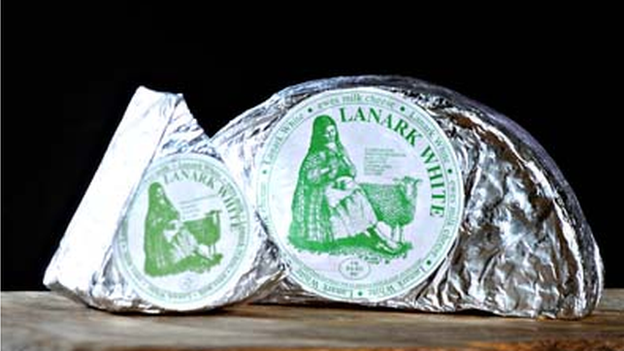
- Published5 September 2016
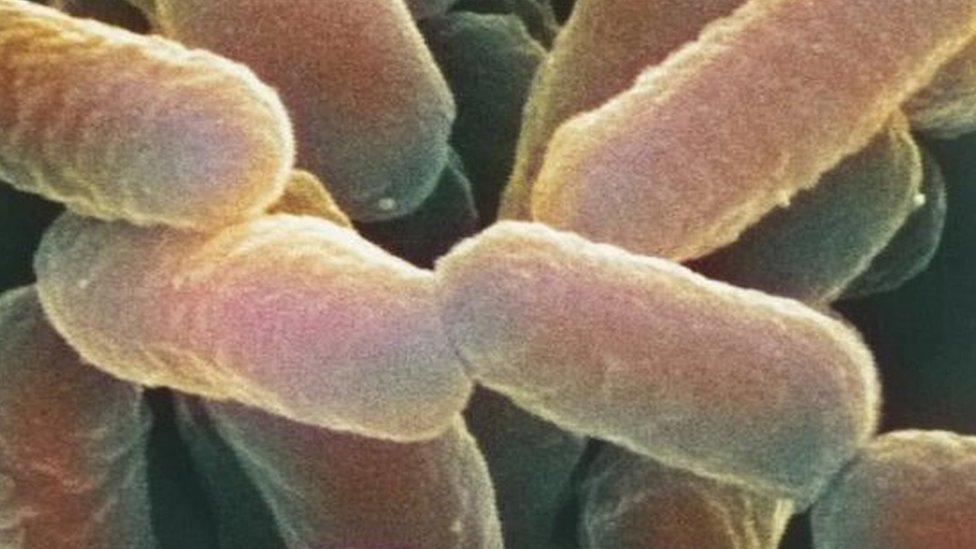
- Published8 September 2016
